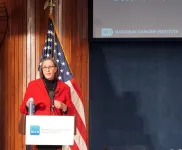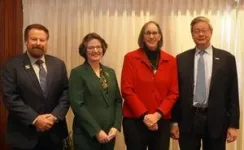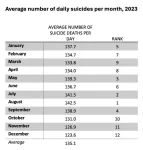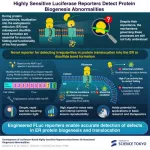“When people with cancer are empowered to make informed choices about their care, they tend to have better outcomes,” said Crystal S. Denlinger, MD, Chief Executive Officer, NCCN, who welcomed attendees at the start of the program. “That means we must provide patients with clear, trustworthy information that meets them where they are. For example, the NCCN Guidelines for Patients offer plain-language explanations of the latest evidence-based recommendations. They feature expert guidance on most cancer types, along with prevention, screening, and supportive care. We share them in multiple languages and formats, including books and webinars.”
“Every person facing cancer needs and deserves high-quality information to understand their options and guide their decisions. The National Cancer Institute, NCCN, and other organizations represented at the summit contribute to a complex information landscape to meet the needs of people with cancer,” said Dr. Rathmell. “Trust in the cancer research enterprise is essential to ensuring that scientific progress includes and reflects the diversity of patient experiences and providing reliable health information is a key aspect of earning and honoring that trust.”
During a series of Best Practices Presentations for sharing patient-centered health information, NCCN’s Senior Director of Patient Information Operations, Dorothy Shead, explained that the NCCN Guidelines for Patients® are available for free at NCCN.org/patientguidelines or via the NCCN Patient Guides for Cancer App—thanks to funding via the NCCN Foundation®.
Additional presentations came from spokespeople for We Engage 4 Health, HPV Cancers Alliance, Cancer Support Community, and the Frontier & Rural Patient Navigators at the University of Utah Huntsman Cancer Institute. More information can be found in a new resource toolkit at NCCN.org/patient-advocacy-resources.
Preventing the spread of misinformation
Speakers underscored the need to identify and debunk any myths that can create misunderstanding and a false sense of security. They discussed the importance of working with trusted messengers to counter misinformation.
“A key lesson learned from COVID-19 was the importance of having trusted professional and community advocates address misinformation and disinformation,” noted Martha Dawson, DNP, RN, FAAN, FACHE, Immediate Past President, National Black Nurses Association. “Diverse researchers, scientists, policymakers, faith-based leaders, and community advocates with similar lived experiences can serve as sources of trusted information. It is important to support and expand cancer education at the community level and engage with people where they are born, live, work, play, worship and transition life.”
"Misinformation in cancer care can create confusion, delay treatment, and undermine trust between patients and providers. By addressing these challenges head-on, we can empower patients with accurate, accessible information to make informed decisions about their health,” agreed Skyler Johnson, MD, Professor, Department of Radiation Oncology, Huntsman Cancer Institute at the University of Utah. “Effective communication is at the heart of quality cancer care. We need to equip clinicians and patients with the tools and strategies to counter misinformation, foster trust, and work together through an increasingly complex healthcare landscape.”
Clear and consistent messaging to build trust
A recurring theme throughout the discussions was the importance of clear and consistent health messaging that is delivered in a way everyone can understand. That means keeping in mind inclusive technology and supportive health literacy levels. Speakers cautioned against using too much medical jargon, instead focusing on language that can resonate. They also noted that it can be hard to retain information right after learning you or a loved one has cancer, so careful repetition can be key.
Speakers also reiterated how crucial it is to build trust with each patient through open and honest two-way relationships.
“As a survivor and caregiver, I’ve seen firsthand the impact that clear and culturally-relevant care discussions can have for patients and their families,” explained Randi Ervin, Survivor/Advocate, Pancreatic Cancer Action Network (PanCAN). “Compassionate, empathetic, and relatable communication—delivered at the right time—can make a difficult journey feel a little more manageable for families like mine.”
Bryce Reeve, PhD, Professor, Population Health Sciences, Duke University School of Medicine, commented: “As a health care system, we have a responsibility to ensure that every individual with cancer has a voice in their care. This is especially important for young children and individuals from marginalized communities whose values, perceptions, and experiences have often been overlooked.”
“Regardless of our affiliations, whether it be community healthcare, academic medicine, the federal government, or the nonprofit sector, it is critical for us to recognize the richness of collaborating with non-science/healthcare community members to address challenges such as health misinformation and equitable clinical trial participation,” concluded Arnethea Sutton, PhD, Interim Assistant Director of Community Outreach and Engagement, VCU Massey Comprehensive Cancer Center. “Not only will these collaborations contribute to trust-building amongst all partners, but the richness of diverse thought and perspectives will contribute to the translation of science and ultimately equitable outcomes for all.”
Learn more about past NCCN Oncology Policy Summits, and save-the-date for future events, at NCCN.org/summits. Next year’s series will include the topics: Primary Care and Oncology Collaboration, Artificial Intelligence, and Unique Needs of Veterans and First Responders.
# # #
About the National Comprehensive Cancer Network
The National Comprehensive Cancer Network® (NCCN®) is a not-for-profit alliance of leading cancer centers devoted to patient care, research, and education. NCCN is dedicated to defining and advancing quality, effective, equitable, and accessible cancer care so all people can live better lives. The NCCN Clinical Practice Guidelines in Oncology (NCCN Guidelines®) provide transparent, evidence-based, expert consensus-driven recommendations for cancer treatment, prevention, and supportive services; they are the recognized standard for clinical direction and policy in cancer management and the most thorough and frequently-updated clinical practice guidelines available in any area of medicine. The NCCN Guidelines for Patients® provide expert cancer treatment information to inform and empower patients and caregivers, through support from the NCCN Foundation®. NCCN also advances continuing education, global initiatives, policy, and research collaboration and publication in oncology. Visit NCCN.org for more information.
END







